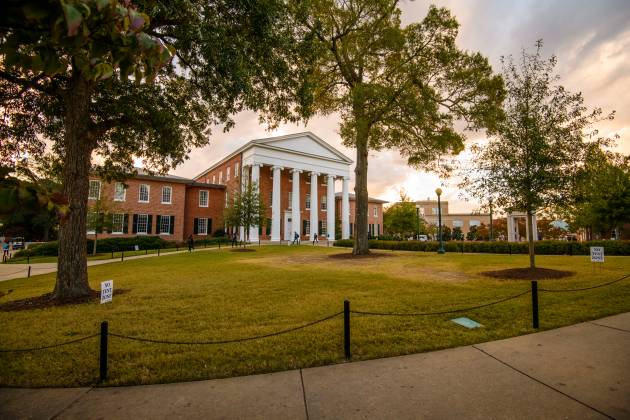Featured
University’s Quality Enhancement Plan Hones Critical Thinking

Staff Report
University of Mississippi
A campuswide initiative in the works for several years promises to help boost critical thinking among University of Mississippi students, providing skills they can use throughout their careers.
The university’s Quality Enhancement Plan, dubbed “Thinkforward,” aims to improve student learning and success by encouraging freshmen and sophomores to think critically, said Josh Eyler, clinical assistant professor of teacher education and director of the Center for Excellence in Teaching and Learning.
“When you think critically, you actually strengthen and develop neural networks in your brain,” said Eyler, who also directs the program. “When neurons fire together, they wire together. That’s essential to success in college and in life.”
The Quality Enhancement Plan is part of the university’s reaffirmation of accreditation process with the Southern Association of Colleges and Schools Commission on Colleges. Member universities must renew their accreditation every 10 years.
The planning committee solicited feedback from faculty members about what the university should focus on for this cycle, and the consensus was that students would benefit most from developing solid critical thinking skills.
Based on the principles that critical thinking requires self-awareness, a commitment to evidence-based reasoning and intentional practice, faculty members have adjusted courses to make critical thinking a focus in their classrooms. The College of Liberal Arts, through which every Ole Miss undergraduate passes, has made implementing the plan a priority since its launch in 2018.
“The definition of critical thinking depends on the department,” Eyler said.
For example, in the Department of Chemistry and Biochemistry, professor Jason Ritchie focuses on mathematical literacy and having his students graph key concepts on a Google sheet in his introductory chemistry class.
“In my course, students form conclusions that are based on that data,” he said. “This is new for a lot of students who come to UM equating learning with memorizing.
“I explain to them that memorization is a lower level of learning and that they want to make the leap to developing a quantitative ability to analyze data-based problems and draw their own conclusions.”
Simone Delerme, associate professor of anthropology, focuses on raw data in her Globalization and the U.S. South course. The class is offered through Southern studies, an interdisciplinary major in the Center for the Study of Southern Culture that includes African American studies, anthropology, art, English, gender studies, history, music, political science and sociology
“I revamped the entire syllabus for the course,” she said. “I focus on raw data and making sense of it.
“In the past, the students were presented with an argument already articulated in academic journal articles. Now, they have to draw hypotheses using original data sources.”
Delerme’s students also consider the societal and historical context of news articles they read and discuss.
“We look at current reporting and compare it to the news articles of the 1970s and 1980s,” she said. “The point isn’t just to get facts from articles, but to see if the journalists are putting a spin on their topics.
“I assign reflection statements to students, and when I read those, I really see what and how they’re thinking.”
In tandem with her coursework, Delerme has developed Invisible Oxford, a field project that brings students to “invisible places and spaces in Oxford” to analyze them through the lenses of race and history.
“Critical thinking is essential to interdisciplinary studies,” said Daniel O’Sullivan, chair and professor of modern languages. “We’re launching an interdisciplinary initiative so that students can incorporate a new or native language into any major.
“That’s a skill that employers look for. They also look for the cultural fluency that’s needed in a global workplace.”
The ability to analyze information and adapt to change is essential for students to be prepared for successful careers and lives, said Lee Cohen, UM liberal arts dean.
“It has been said that employees today change their jobs upwards of seven times throughout their lifetime,” he said. “It is for this reason that they need to be able to pivot to varying roles in different organizations, all of which will require them to synthesize and analyze information and present it clearly.”






















































